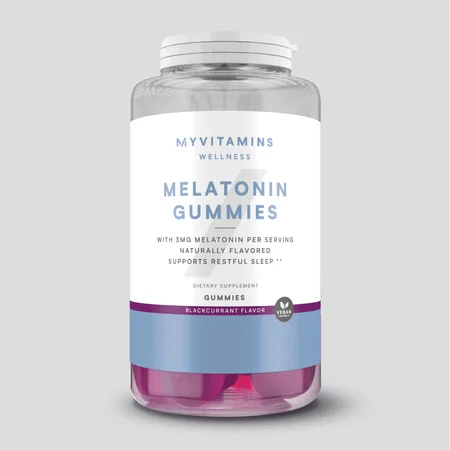
This week's top studies delve into some major topics in the health and wellness world: sleep, gut function, and obesity. Let's check out the latest discoveries.
The Three Sleep Phases of Life
One thing that everyone loves to talk about is sleep, or more specifically, how they're always tired. These days, many adults do not get enough shut-eye on the regular. But did you know there are patterns to how many hours people are sleeping per night based on age? A recent study published in Nature Communications looked at sleep duration data from over 700,000 participants across 63 different countries. The data revealed three distinct sleep phases in a person's lifespan. The phases have been defined as early adulthood (19-33 years), mid-adulthood (34-53 years), and late adulthood (54+ years).1
Middle-aged adults were reported to get the least amount of sleep, with the younger adults (19-33) and older adults (54+) getting more. A possible explanation for this is because of responsibilities such as work and child-rearing that many middle-aged adults deal with. Sleep duration then increases again when people surpass 53 years of age. Again, this is likely because older adults have less work and child-rearing responsibilities.
These sleep patterns were found to be stable across various demographics including culture, gender, and education. Interestingly, the study also looked at the relationship between hours of sleep a night and cognitive performance and found that in older adults (phase 3), optimal cognitive performance peaks at 7 hours of sleep a night.1
Is Your Gut Better Than Mine?
Have you ever wondered why people can eat similar diets but have totally different body types? The latest study adds to the body of research explaining this phenomenon, and it has to do with how your gut works. In a new study done at the University of Copenhagen, published in Microbiome, 85 overweight adults were studied to see if a person's gut type (i.e. the type of bacteria in a person's gut and overall gut structure) is linked to how well that person can extract energy from food.2 To test how efficiently people extracted energy from food, the scientists measured the energy left over after digestion in the subjects' stool samples.3
The results showed that people with different gut types (known as enterotypes) do indeed extract energy from food differently. Certain gut types extract energy better than others. But as the scientists explain, this is not necessarily a good thing. The individuals who were shown to extract the most energy from food also weighed the most. This may be because extracting more energy from food can make more calories available to the person eating, allowing for weight gain.3
The researchers hypothesize that gut type and composition may be a factor in obesity and that the results of the study could possibly explain the wide variation in weight gain amongst people even when they have similar diets and lifestyles.2
New Genetic Link to Obesity
It's not just gut composition, many other factors may be linked to obesity, and researchers have just discovered another one. In a recent study published in The FASEB Journal, scientists identified how a specific cofactor gene suppresses obesity by regulating appetite, metabolism, and blood sugar, specifically for fats and oils and within a high-fat diet.4 The gene, known as CRTC1, is known to suppress obesity in humans. What scientists did not fully understand was how, until now that is.
Even though it was already established that CRTC1 suppressed obesity, this gene is present in all of our neurons or brain cells. So, the scientists were still unsure which brain cells were involved in suppressing obesity. That is what they aimed to find out in this research study.
In the study, the researchers narrowed it down by focusing on a specific receptor (MC4R) in neurons. They then analyzed mice with and without the obesity-suppressing gene present in neurons with this receptor. The MC4R receptor was looked at because it has been previously linked to obesity.4
The results of the study demonstrated that when fed a high-fat diet, the mice overate and developed diabetes when they did not have the obesity-suppressing CRTC1 gene within their neurons with the MC4R receptor. The results reveal the role that the CRTC1 gene plays in regulating obesity and more about the process in the brain which prevents us from overeating foods that are high in fat and sugar.4
Take Home Message
Well there you have it. This week's top studies enlightened us on how sleep duration changes as we age, the effects of different gut types on body weight, and a genetic link to obesity.
LEARN MORE HERE:

This Week's Top Studies: Food Dye, Daily Steps, & the Mediterranean Diet
Learn about the dangers of food dye, heart-health benefits of daily steps, and t...

This Week's Top Studies | Digital Devices, Processed Foods, and Cravings
This week's top studies will take you through digital devices, processed foods, ...

Hot vs. Cold: The Health Benefits of Temperature Therapy
Hot or cold... the timeless question....

A Rutgers University Honors graduate, Jamie grew up on the Jersey shore and double majored in Comparative Literature and Anthropology in college. Jamie is an experienced writer in the health and wellness, biotech, and eCommerce fields. She loves writing with a purpose and has even written for the Department of Justice.
Jamie became drawn to exercise during her time in university and began to notice the physical and mental benefits of moving your body daily. Today, Jamie enjoys Pilates, light weight training, and going on long walks in nature daily.
Jamie is also passionate about eating right and prioritizing gut health and immunity. She is always trying the next innovation in health and wellness. When she’s not writing articles, Jamie enjoys reading, playing guitar, and finding dogs to play with.
- Coutrot, A., Lazar, A.S., Richards, M. et al. Reported sleep duration reveals segmentation of the adult life-course into three phases. Nat Commun 13, 7697 (2022). https://doi.org/10.1038/s41467-022-34624-8
- Boekhorst, J., Venlet, N., Procházková, N. et al. Stool energy density is positively correlated to intestinal transit time and related to microbial enterotypes. Microbiome 10, 223 (2022). https://doi.org/10.1186/s40168-022-01418-5
- University of Copenhagen – Faculty of Science. “Some guts are better than others at harvesting energy.” ScienceDaily. ScienceDaily, 26 December 2022. <www.sciencedaily.com/releases/2022/12/221226094252.htm>.
- Osaka Metropolitan University. “Understanding the ‘eating just one potato chip is impossible’ gene: Scientists reveal genetic mechanism associated with high-calorie food-fueled obesity.” ScienceDaily. ScienceDaily, 23 December 2022. <www.sciencedaily.com/releases/2022/12/221223103438.htm>.










